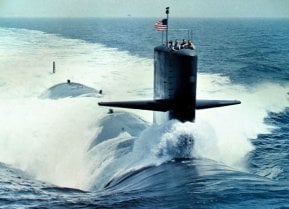Russia’s Paper Tiger Military: Why NATO Shouldn’t Fear Putin
Vladimir Putin’s Russia has long been perceived as a significant military threat, but its recent failures, especially in Ukraine, reveal a weaker reality. Despite bluster and aggressive tactics, Russia’s hybrid warfare—combining conventional and unconventional means—has consistently fallen short.
The Forever Paper Tiger Putin: How did so many people get Vladimir Putin’s intentions so very wrong from the start? Why are there no consequences for gross incompetence in the evaluation of military effectiveness? Many people in the field have one job: to think and learn about Russia’s use of modern weaponry. Yet, they often fail to pay attention to Russian behavior and outcomes. Our forthcoming book, Modern Hybrid Warfare: Russia versus the West, details these failures.
As we argued in a 2015 Foreign Affairs article, Russia has and will always be a paper tiger, a weak coercive force because it mostly fails to achieve their objectives. Back in 2007, the world watched as Russia threatened Estonia, kicking off our modern cyber security era with a massive attack. Yet this attack was more bluster than reality. It had little impact, and if the hope was moving Estonia back into the Russian orbit, it failed decisively. Its five-day 2008 conflict with Georgia has also led to a vast majority of Georgians wanting to join the European Union (EU) and NATO, according to a 2023 poll.
Fast forward to Ukraine, and while Russia was successful in taking Crimea and stirring up civil strife in the Donbas in 2014, Ukraine was also unprepared for a conventional war with Russia at the time. That changed in 2022, as Ukraine had been given eight years to reform its military and prepare. With the support of Western training, weapons, and intelligence, as well as domestic ingenuity such as FPV drones, Ukraine has managed to beat back Russia’s advance and defend most of its homeland.
Russia’s military, on the other hand, has proven to be an ineffective fighting force and plagued by corruption, low morale, incompetence, and poor leadership. The once-feared Russian military has shown itself to be a paper tiger as well. The disastrous Battles of Hostomel and Kyiv in the first days of the invasion showed how unprepared the Russian military had been for this fight. With the war at a stalemate and a parallel Ukrainian invasion of Russia in the Kursk oblast, Putin keeps doubling down on continuing the war that appears unwinnable for him more and more by the day.
Russian Military Failures
Russia’s hybrid strategy in warfare includes conventional military means but also unconventional, such as cyber and information operations, electronic warfare, and coercive energy policy. Russia’s capabilities in these unconventional means have fallen short in the war.
Ukraine has been able to counter many cyber operations intended for its military and critical infrastructure, and Russia has turned to Iranian-made Shaheed drones to achieve its goals. Russia’s famous influence operations, although successful domestically, have fallen flat with international audiences as most governments and populations are not buying the Russian narratives for its justification of invading its neighbor. Russian electronic warfare has been countered by Ukrainian use of Western equipment, effectively nullifying any advantage in this space.
Russia’s much-vaunted coercive energy capabilities have been a huge failure. Ukraine, which had been partially dependent on Russian gas and at one time served as an important pipeline transit country for Russian gas to Europe, will finally cut off supplies at the end of 2024. Germany, a country that continually backed rehabilitating Russia with economic integration, has shifted back towards Western Europe with its Nordstream pipeline dreams in tatters. Europe has found it can get on without Russian gas. The challenge of Russian energy capabilities and their failures highlight the key failure of Russian hybrid warfare.
The Future Threat
Will Russia recover and be a threat to NATO? Constant failure does lead to some form of improvement. Russia will reconstitute its battle groups, revising its doctrinal warfare considering the stinging rebuke Ukraine has given the nation. The challenge is that Russia is not a professional fighting force because it does not hold democratic values. Instead, it will waste men and lives with little consequence. It can afford to fail and fail again, improving marginally because reports can be faked and embellished.
The real choice is with NATO; pay attention to the paper tiger at the border, roaring for attention. Or continuing to support NATO member nations in the deterrence of unwanted aggression by those who do not hold any value to sovereignty that does not advance the failed Russian empire.
When we hear the paper tiger roar, we smile and move on to more consequential problems in international society. When others hear the roar, they tremble, forgetting that the tiger is a mouse hiding behind an effigy of a menacing threat of what is a sweet and cuddly teddy bear. Paper tiger, indeed.
About the Authors:
Brandon Valeriano is an assistant professor at Seton Hall University in the School of Diplomacy and a visiting fellow at the Royal Danish Defence College.
Ryan C. Maness is an Associate Professor in the Defense Analysis Department at the Naval Postgraduate School. His research includes cyber conflict, cyber security, cyber coercion, cyber strategies, information warfare, Russian foreign policy, American foreign policy, and conflict-cooperation dynamics between states using Big Data.
They are the joint authors of Cyber Strategy and the forthcoming Modern Hybrid Warfare.
Image Credit: Creative Commons and Shutterstock.


